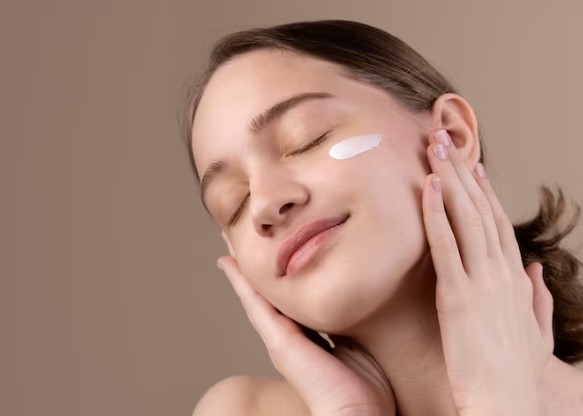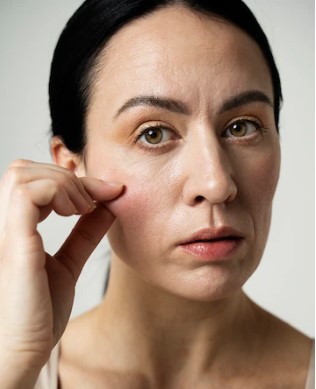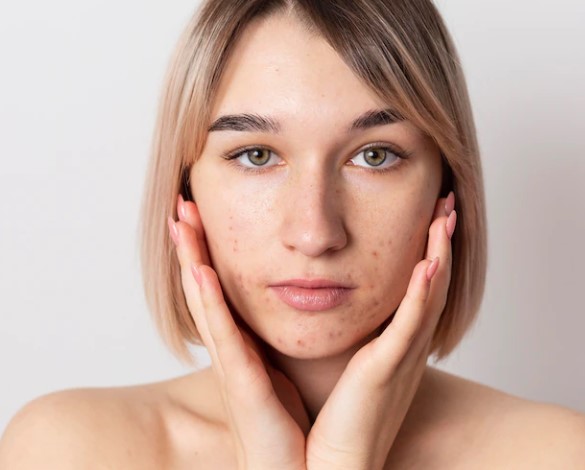
Sensitive or intolerant (atopic) skin can be identified by its reaction different from normal skin, that is, hyperreactive. Explained in (Bioderma, sf) These sensations are usually accompanied by redness, symptoms derived from exposure to stimuli that may be internal or external. Sensitive skin reacts to stimuli that do not have any adverse effects. Thus, Hypersensitivity causes the skin barrier to tolerate less different factors that other types of skin accept without problem.

Having sensitive skin is very common, “ 60% of women suffer from this condition to a greater extent.” than men, who represent 40%. For genetic reasons, some skins have a greater predisposition to sensitivity than others.” (Bioderma, sf). These predispositions tend to manifest themselves more in photo types 1 and 2 (light skin). Having this type of skin, in turn, can be identified as a clinical condition of some kind. pathology of the face itself, such as, for example: seborrheic dermatitis, eczema or rosacea.


Having sensitive skin is very common, “ 60% of women suffer from this condition to a greater extent.” than men, who represent 40%. For genetic reasons, some skins have a greater predisposition to sensitivity than others.” (Bioderma, sf). These predispositions tend to manifest themselves more in photo types 1 and 2 (light skin). Having this type of skin, in turn, can be identified as a clinical condition of some kind. pathology of the face itself, such as, for example: seborrheic dermatitis, eczema or rosacea.

In which biotypes does sensitive skin occur?
It is necessary to mention that, Sensitive skin can occur in any skin biotype: combination, oily or dry . Likewise, exogenous factors play a fundamental role in this type of skin. For example: environmental exposure, which is a determining factor in the reactions of sensitive skin, the correct and specific use of cosmetics for these skin types must also be taken into account.
For its part, the main causes of sensitive skin are usually: endogenous and exogenous factors (cosmetic product, type of diet, climatic factors) we must also highlight that there are more sensitive areas of the body such as the scalp, face and hands.


What to do if you have sensitive skin
Taking into account the factors that occur in sensitive skin, to treat it, you must have a appropriate diagnosis by a “dermatology professional, with the aim of identifying the main causes of skin sensitivity or aggravating factors in skin reactions”, (Bioderma, sf). It should be noted that the cases are different and particular. Some treatments can range from topical applications. In the cosmetic area, it must be determined what degree of sensitivity the skin has and which products are suitable, After identifying these factors, the specialist can recommend thermal waters, which help moisturize and hydrate the skin and choose Hypoallergenic products with a minimal amount of parabens. Finally, it is important to add daily care to effectively treat sensitive skin, limiting as much as possible the sources of aggression or factors that aggravate skin sensitivity:
Avoid extreme temperatures (hot/cold) , products indicated for severe pathologies such as acne that usually cause irritation, exfoliation and harsh washing; Lastly and most importantly, use sunscreen indicated for sensitive skin.
Laura Isabel Mesa Arcila, Social Communicator
For Satori Beauty
Avoid extreme temperatures (hot/cold) , products indicated for severe pathologies such as acne that usually cause irritation, exfoliation and harsh washing; Lastly and most importantly, use sunscreen indicated for sensitive skin.
Laura Isabel Mesa Arcila, Social Communicator
For Satori Beauty

